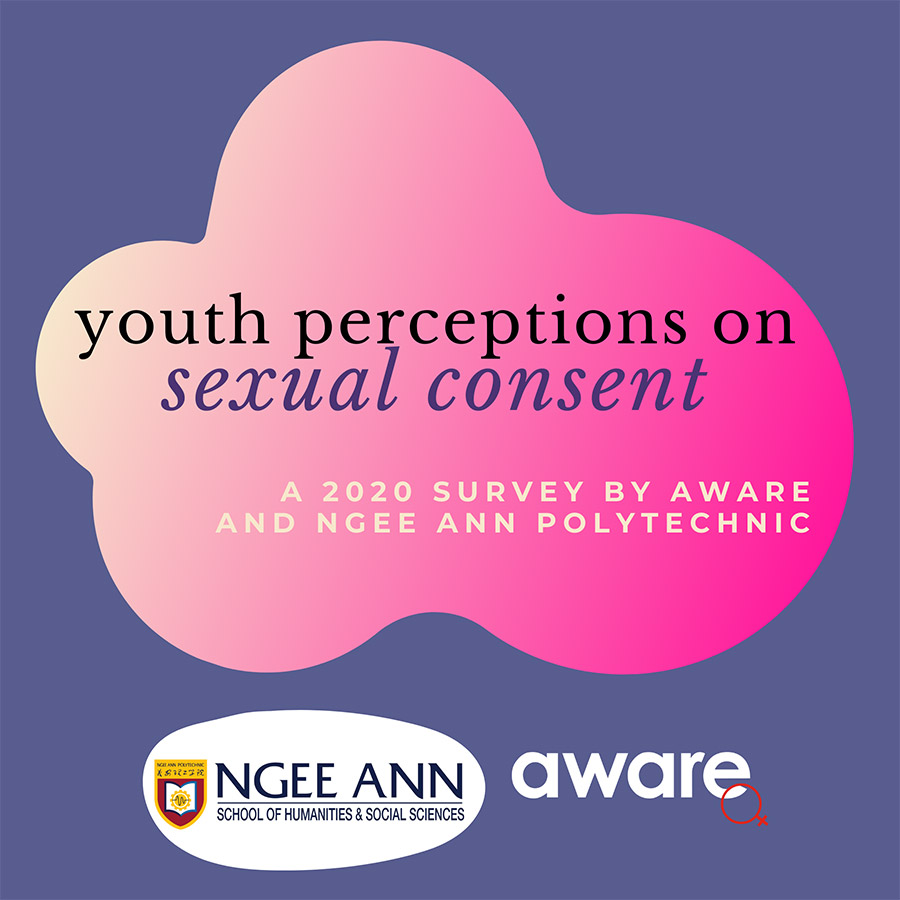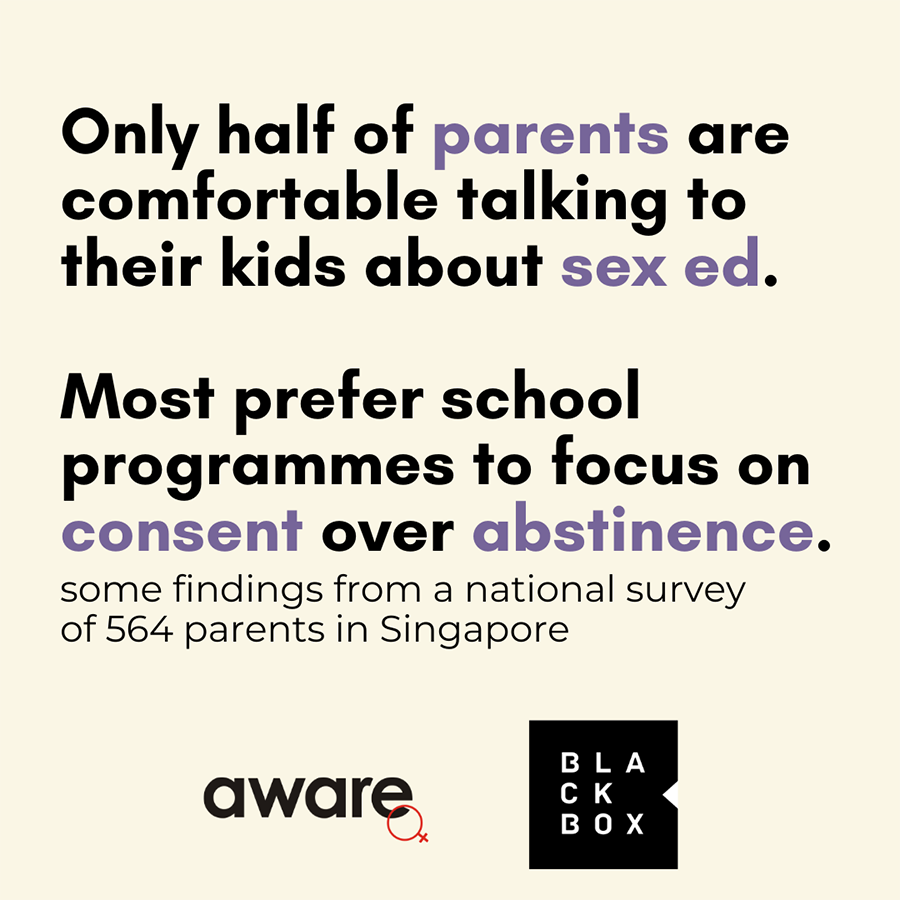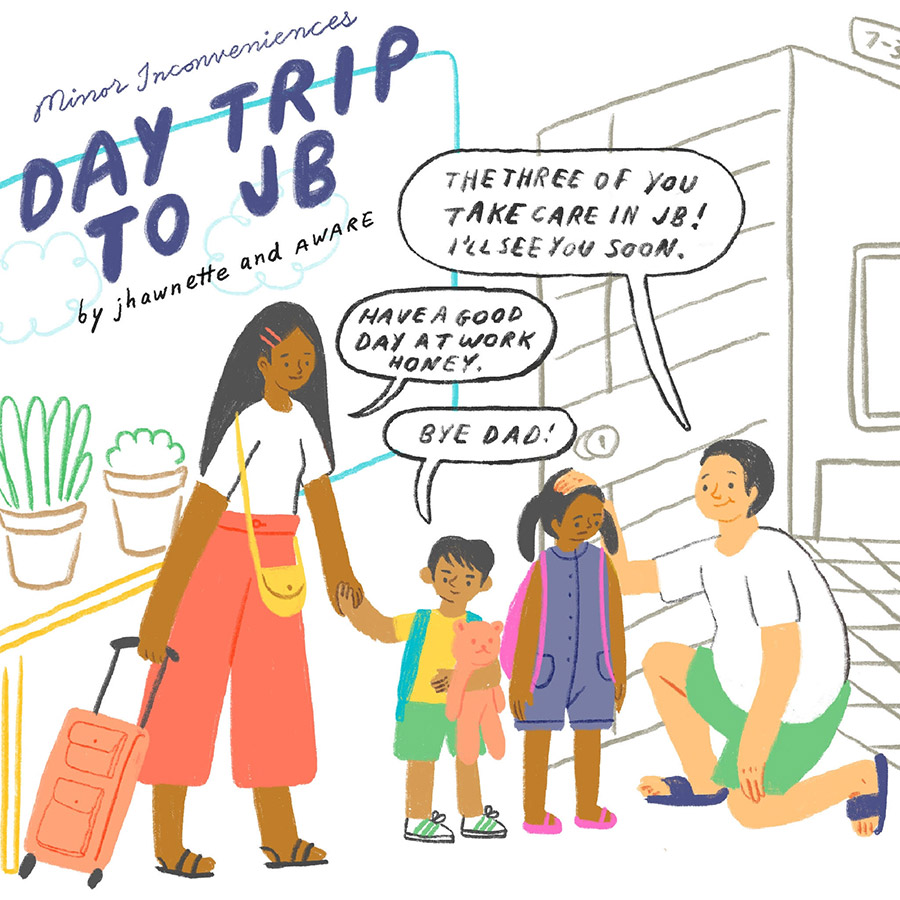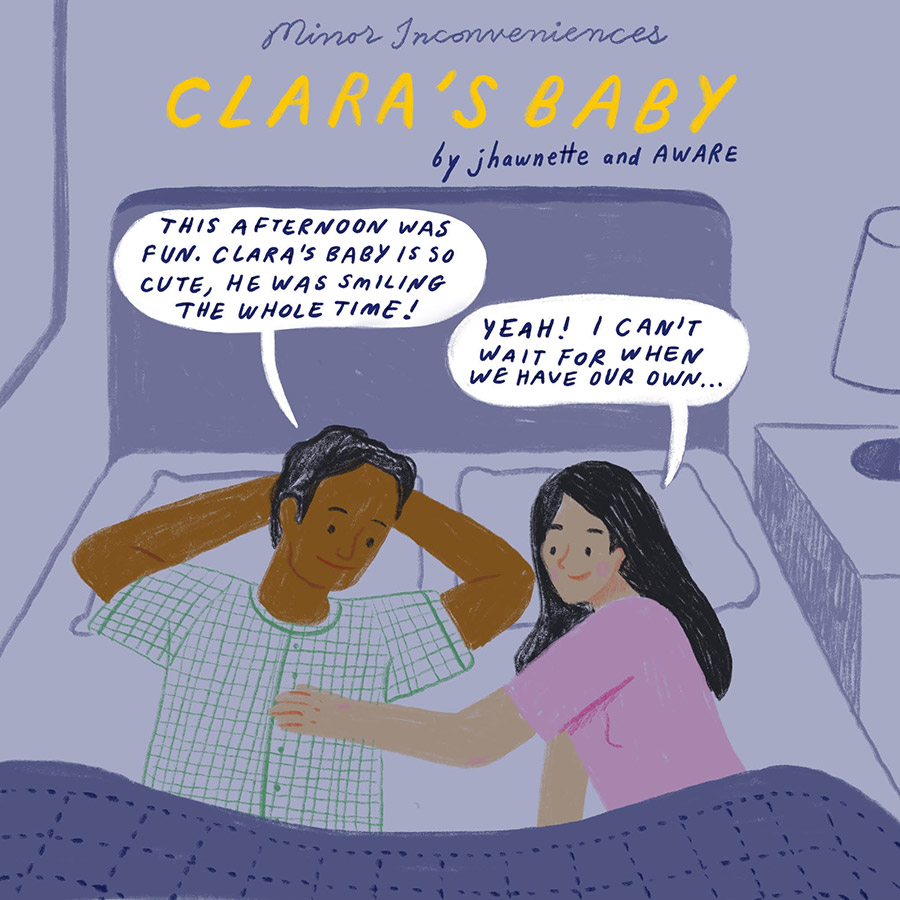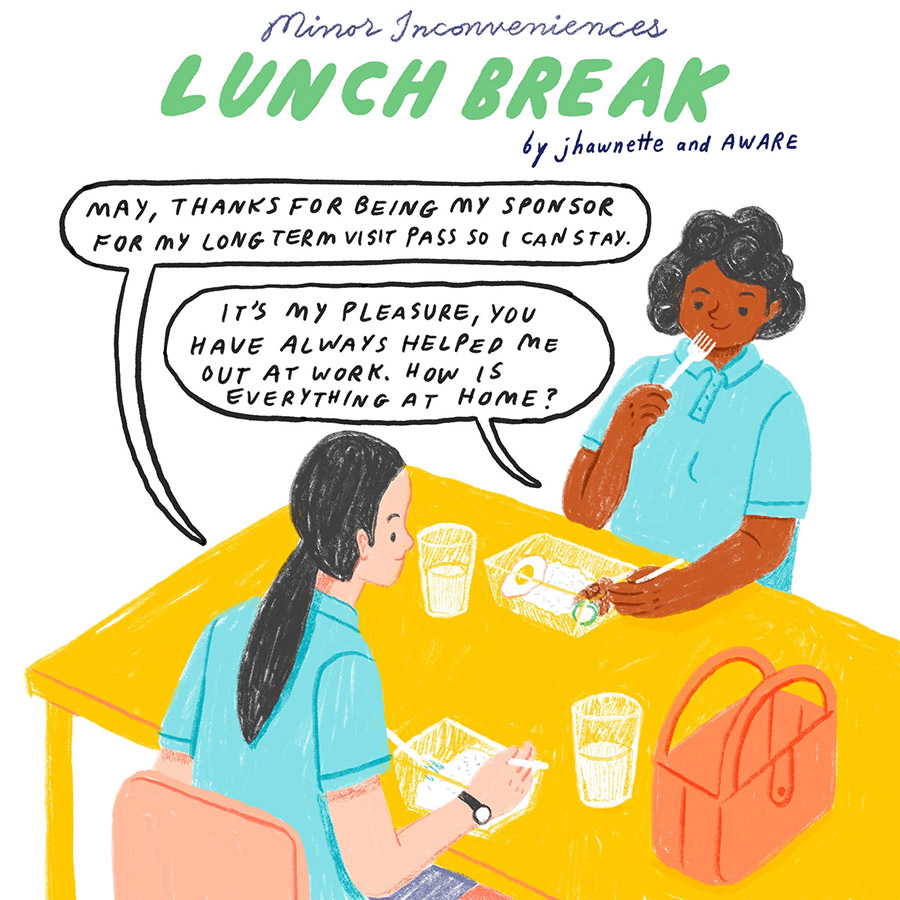Advocacy
Advocacy: Women And Girls At Home
Comprehensive sexuality education
i) New research
AWARE advanced national conversations around consent through two surveys we conducted in collaboration with external partners. One survey, on 539 youth in Singapore, found that while respondents generally understood consent in hypothetical scenarios, when it came to real-life situations, things were not so straightforward. Of the respondents who indicated prior engagement in sexual activity, only slightly more than half stated that they had discussed sexual consent with their most recent partner. The results backed up our belief that consent—how to ask for it, communicate it, and respect when it isn’t given—should be properly covered in Singapore’s sex education curriculum, so that young people are equipped with the confidence and skills to navigate sexual interactions.
The need to introduce consent education at school is keenly felt by parents, according to the results of our second survey, this time conducted on adults and in collaboration with Blackbox. This survey found that only half of parents in Singapore felt comfortable talking to their children about sex education, and many lacked the tools to do so. That lack of practical tools and skills is reflected in the demand for our Birds & Bees parents workshop.
ii) Birds & Bees
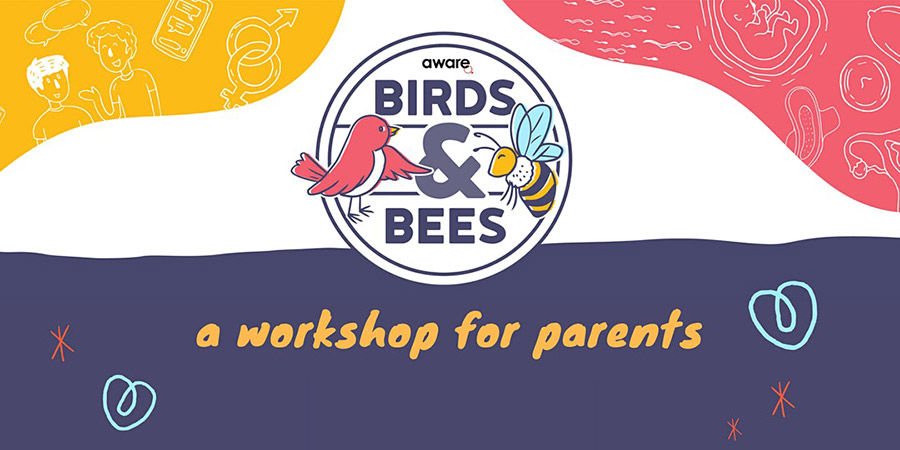
Birds & Bees is a workshop that helps parents start non-judgmental conversations with their children about sex and relationships, through case studies, role-play and facilitated discussions. It acknowledges that most parents need help stepping into the shoes of “sexuality education provider”—a role that, nevertheless, they must take on. In 2020, its second full year of operations, Birds & Bees enlisted two new workshop facilitators and transitioned into a new, online format. Fifty parents attended this new version, consisting of three parts instead of just one.
After taking Birds & Bees, 92% of parents said they felt more confident about talking to their child(ren) about sex and relationships, while 98% believed that all young people should have access to comprehensive sexuality education.
In late 2019, we secured a grant from the Health Promotion Board to launch a follow-up programme to Birds & Bees. Entitled Walk the Talk!, it will involve both parents and children participating together in the classes. Although the plan was to launch the programme in 2020, COVID-19 made that challenging. With the relaxation of safe-distancing measures in 2021, we look forward to launching the programme and enhancing parent-child communication on consent and relationships.
Migrant spouses in Singapore
We amplified AWARE’s advocacy on the rights of migrant spouses through a range of activities in 2020. In June, we published an analysis of calls made by migrant spouses to our Women’s Helpline, to highlight their vulnerability to family violence and the unique challenges they face in divorce processes. The report was launched at a virtual event we organised on family violence, Hostile Homes: Domestic Violence, the Virus and the Vulnerable. It drew more than 200 participants.
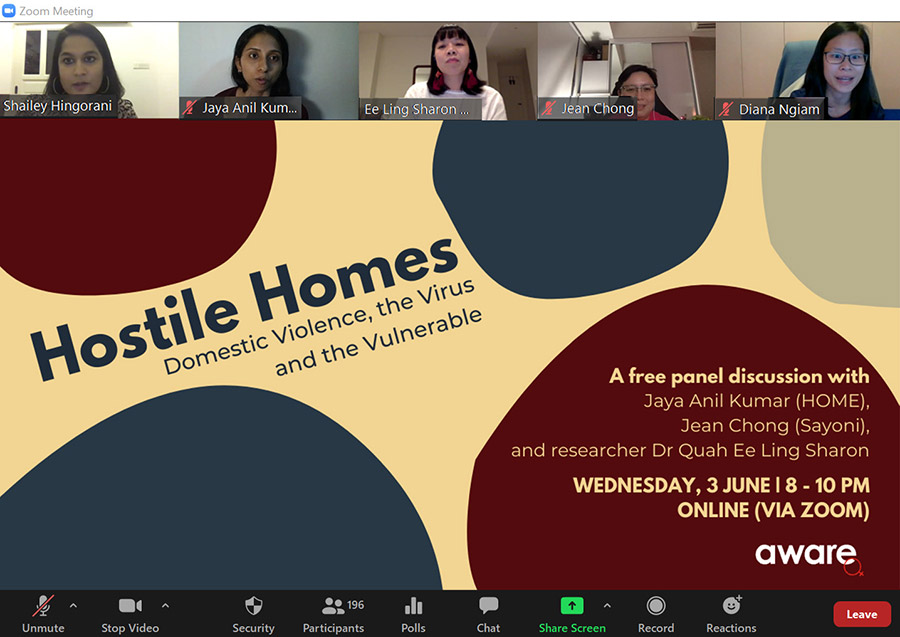
Public attention on the plight of migrant spouses intensified after we wrote a Straits Times Forum letter in August about transnational couples who risk being separated during the COVID-19 pandemic. Over the next three weeks, 10 more couples reached out to us to share similar experiences. The letter prompted a public response by the government, stating that the Immigration and Checkpoints Authority takes travel restrictions into account when assessing visit pass extensions.
Finally, we worked with illustrator @jhawnette to produce a series of comics called Minor Inconveniences. The comics depict the everyday dilemmas and inconveniences that transnational families navigate in Singapore, amalgamated from interviews we conducted with 35 members of transnational families. The series was published on the International Day of Migrants (18 December) and garnered close to 50,000 impressions in total on social media, signaling public empathy and support for these families.
Support, Housing and Enablement (S.H.E.) Project
The S.H.E. project is a shelter for low-income single mothers and their families. It is also AWARE’s first longitudinal qualitative research project aiming to identify the barriers to home ownership for these women, and examine whether housing stability has an impact on other aspects of their lives (such as personal growth, work, finances and interpersonal relationships).
One of the shelter apartments ended its lease in July 2020. The four families who had been residing there successfully obtained either public or private rental apartments. By the end of 2020, six families, with a total of eight children between them, remained at S.H.E., living in three rented apartments.
With their newfound housing stability, residents have achieved success in various aspects of their lives:
- Advocacy: Residents participated in a total of seven pieces of media (articles, essays and radio interviews), raising awareness on issues faced by single parents in Singapore.
- Employment: Two residents saw career progressions through promotions and increased salaries.
- Children’s education: An N-level student completed her exams and will soon be taking her O-levels. Another child, a primary-schooler previously living at a crisis shelter, learned to take on more responsibilities after moving into S.H.E.
- Housing: Six households have to date successfully transitioned out of S.H.E. into their own rental flats or private rental rooms.
After the COVID-19 outbreak, S.H.E. residents expressed great relief that they were not living in their previous housing arrangements while facing the pandemic. One mentioned that living with her ex-partner, with his toxicity and abuse, would have driven her to madness. Another imagined the fighting, financial issues and overcrowding she would have had to deal with living with her mother and sister.
That said, 2020 was a particularly hard year for the residents at S.H.E. with the uncertainties of the pandemic and accompanying anxieties. We were grateful to end the year with one of our residents safely delivering a new baby.
Sharul Channa’s Am I Old?
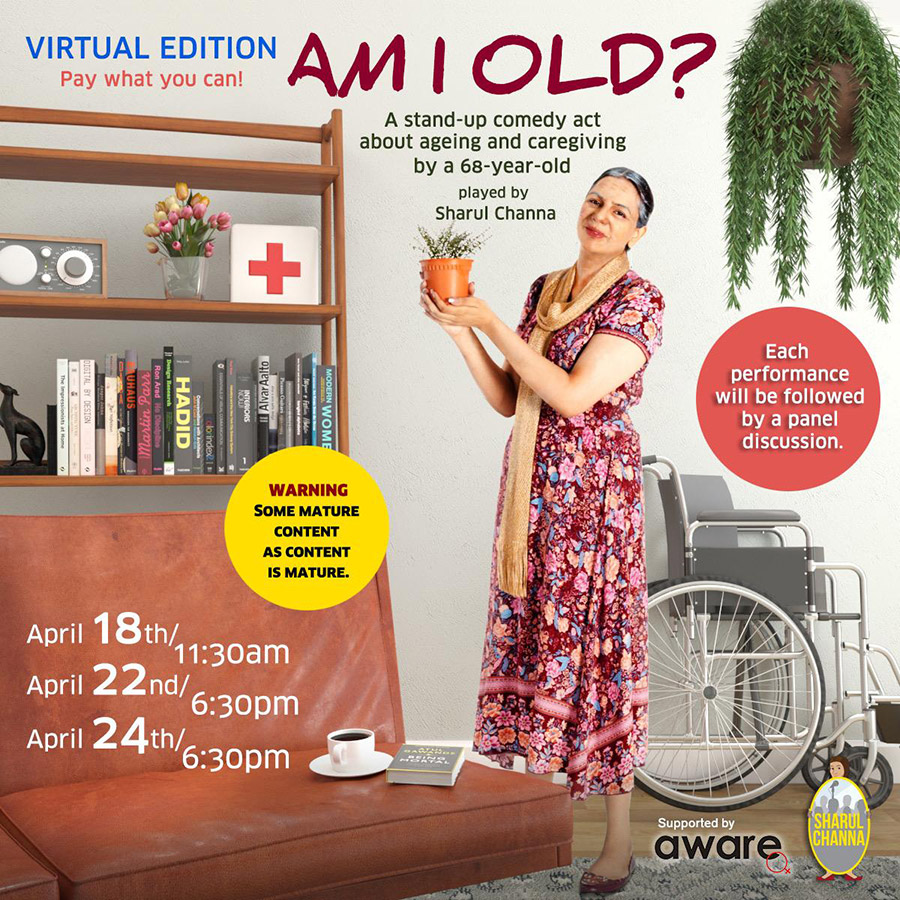
In our mission to advocate for support for female family caregivers, we never expected to become pioneers in virtual theatre—but thanks to an innovative collaboration with local comedian Sharul Channa, that is precisely what happened in early 2020. Originally conceived as an in-person one-woman comedic monologue in the vein of 2019’s Crazy Poor Sita, Sharul’s new show, Am I Old?, was forced to pivot to Zoom thanks to the COVID-19 outbreak in March. Eight virtual editions of the show followed—in English, Hindi and Tamil—attracting more than 600 audience members by the end of June. Am I Old? was performed and written by Sharul, based on AWARE’s 2019 eldercare research report “Make Care Count”. Every performance was followed by panel discussions with family caregivers, AWARE representatives, academics and other experts in the caregiving space.
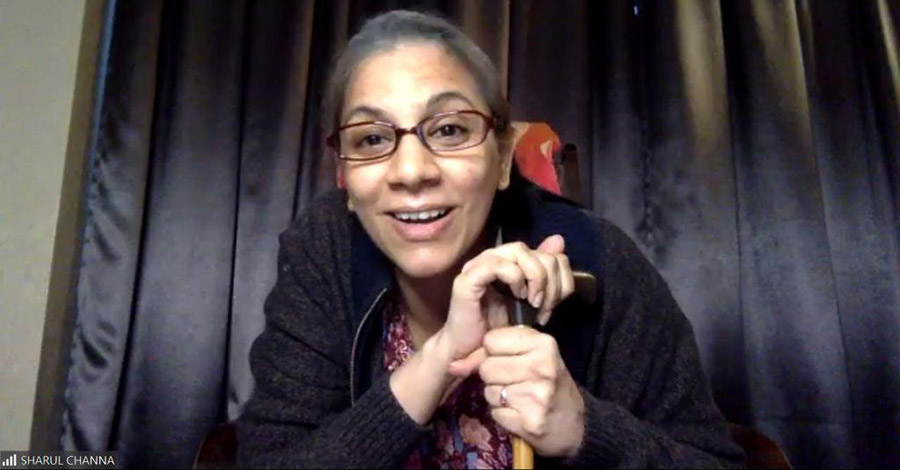
Audiences and critics alike gave rave reviews to Am I Old?’s mix of entertainment and edification, wit and pathos. Noting the show’s groundbreaking Zoom format, The Straits Times observed that “the intimacy of the closeup view of Savitri [Sharul’s caregiver protagonist] creates an atmosphere of a confidential tete a tete for two… that the monologue had hit home for many was reflected in the number of people who stayed after the show for Aware’s panel discussion about the gendered nature of caregiving and the burdens it places on women”. Meanwhile, Bakchormeeboy enthused: “With Am I Old?, Sharul has fully capitalised on her ability to tackle the intensely personal with both heart and humour, having created a show that swells with the fruit of love, pride and determination.”
